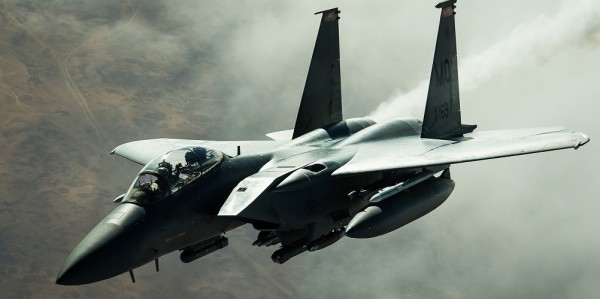

A spokesman for the military coalition against ISIS hinted today that the U.S. is still in touch with Russian forces operating in the same space, days after Russia cut off those communications amid rising tensions.
Col. Ryan Dillon, a spokesman for Operation Inherent Resolve, gave those clues in a livestreamed briefing June 23 after reporters pressed him about the status of the so-called “deconfliction line,” a communications link between the U.S. and Russian commands that could reduce the risk of a military incident between the world powers.
“If we know through the deconfliction line that there are going to be strikes and our forces are not in the area, that’s how we want things to be,” he said. “It remains open and we’re not going to discuss every detail.”
Tensions have run high since the U.S. helped stand up a coalition garrison at At Tanf near the Syria-Iraq border, a key supply corridor that the Iranian and Syrian governments seem intent on securing.
Related: The US Has No Long-Term Plan In Syria, And That’s Dangerous »
Pro-Syrian regime forces, which are supported by Russia, tried to repeatedly enter the deconfliction zone surrounding the base, triggering retaliatory U.S. strikes against Syrian drones, Task & Purpose reported earlier this week.
After a Navy F-18 shot down a Syrian SU-22 on June 18 for attacking U.S.-backed rebels, Russia declared that it was done coordinating its military’s moves in Syria with U.S. forces.
Earlier today, Russian Navy frigates launched six cruise missiles at Islamic State targets in Syria northeast of Homs, according to the U.S. News & World Report.
When asked by reporters whether the U.S. was notified ahead of the cruise missile strikes, Dillon said, “If they have missiles entering our airspace, that is why the deconfliction line exists. It is open and it is in use.”
He added, “As long as we can deconflict and focus on what we’re there to do without having any strategic mishaps … we’re perfectly happy with that.”
When asked about Syrian regime forces and Iranian-backed militias who, like the U.S.-led coalition, were advancing on Islamic State-held territory, Dillon responded: “We’re here to fight ISIS, and if others want to fight ISIS to defeat them, we have no problem with that.”
https://twitter.com/StephenLosey/status/878278127356702720
WATCH NEXT: